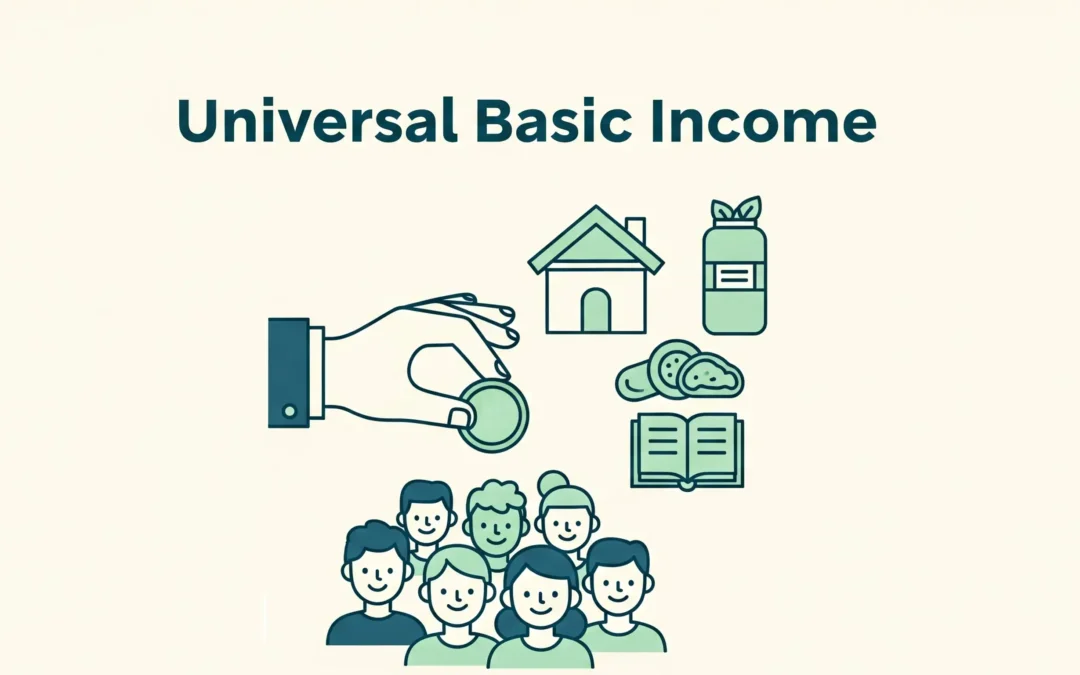The government is responsible not only for looking after the infrastructure and finances but also for its citizens. Universal Basic Income is an unconditional allowance that the government offers to all its citizens, regardless of their income level or employment status. It helps to uplift that class of society and make them feel important and seen. But is this scheme good in the long term? How is a government affected by it? And most important question, will it work in India?
This article will help you understand the meaning of UBI along with its features and applicability in India. Also, it will shed light on the pros and cons for additional information.
What is Universal Basic Income?
All citizens receive a government-guaranteed payment known as the Universal Basic Income, irrespective of their background, income level, or employment status. Because it is unconditional, recipients are not required to demonstrate need or complete any work requirements.
UBI seeks to give everyone access to financial stability and freedom of choice, in contrast to targeted subsidies or welfare programs. The basic idea is that a minimum wage shields people from the risk of poverty, allowing them to meet their basic needs, invest in their future, or find rewarding work.
Key features:
- Unconditional: Paid without requiring employment or evidence of income.
- Universal: Assigned to everyone, irrespective of social or financial standing.
- Regular: Monthly, quarterly, or annual payments are made.
- Individual: Paid to people, not households, guaranteeing individual freedom.
- In Cash: Provided in cash or by direct bank transfer, letting recipients choose how to spend it.
Relevance of Universal Basic Income in India
A universal basic income (UBI) could close this disparity and address a number of systemic issues.
The Significance of Universal Basic Income in India
- Persistent Poverty: Many Indians still face challenges meeting their basic needs, such as access to food, shelter, and healthcare, even after decades of welfare programs.
- Welfare Scheme Leakages: Because of identity mismatches, paperwork, or corruption, many subsidies do not reach their intended recipients. Because it is universal and provided as a direct cash transfer, UBI can significantly reduce inefficiencies and leakages found in targeted subsidies, though some administrative challenges may still remain.
- Agrarian Crisis: Daily wage workers and farmers experience unstable income. During bad crop seasons or economic downturns, a steady basic income could act as a safety net.
- Underemployment & Unemployment: Many people are trapped in low-paying or irregular jobs as a result of automation and a declining formal job market. Even in these unpredictable times, UBI guarantees income security.
- Empowering Women: In rural areas where financial independence is uncommon, a direct transfer to women can increase their ability to make decisions.
- Better Health and Education: Families may be more inclined to spend money on their kids’ education or go to the doctor more frequently if they are less stressed about money.
Potential Benefits and Concerns of UBI in India
Let us look at the pros and cons:
Advantages:
- Prevents Poverty: The poorest people are lifted up by a guaranteed income, which ensures their fundamental dignity.
- Enhances Local Economies: Rural residents can spend more money when they have more money, which increases demand for regional products and services.
- Simple and Transparent: Using direct bank transfers, universal basic income (UBI) is simple to administer and track, in contrast to dozens of overlapping welfare programs.
Difficulties:
- High Fiscal Cost: It would cost roughly 5–8% of GDP to implement a full universal basic income (UBI) for 75% of Indians. This could result in the reduction of other vital investments in infrastructure, health care, or education.
- May Not Be Totally Universal: Due to financial limitations, policymakers may choose to focus on a small number of groups, which could lead to issues with exclusion and identification.
- Work Disincentive Debate: Although international pilots indicate little effect on work hours, critics worry that free money may lessen the incentive to work.
Bottomline
The conclusion can be drawn that UBIs are a good incentive for the government to support the lower class of society. It empowers them to meet their basic need and feel seen. The answer to the question of whether they are feasible for India or not depends on various factors. The majority of India’s population falls under the bracket of low-income to middle-income.
The government needs to find a balance between spending on necessities like infrastructure along taking care of its citizens.


